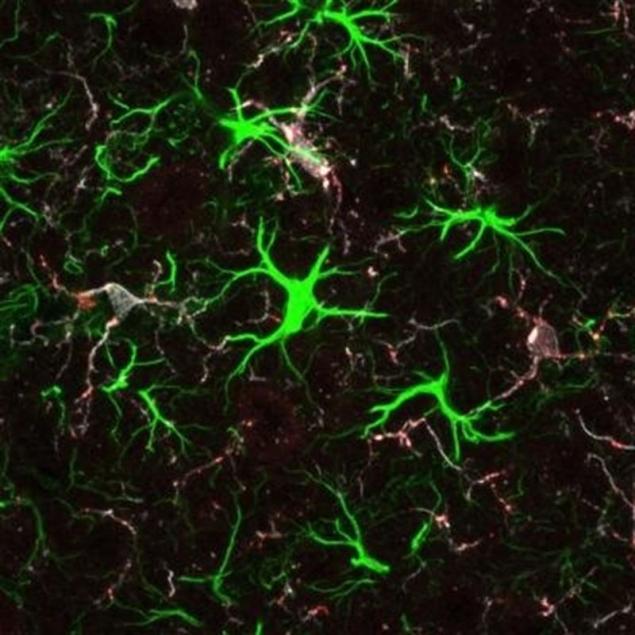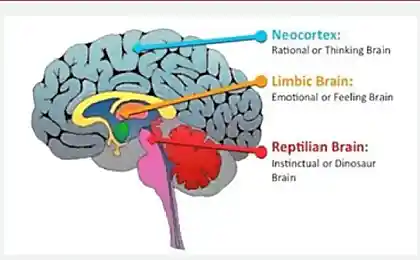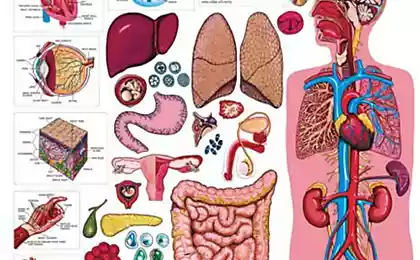405
Protein of Huntington's disease are necessary for proper brain development
Without the normal protein of huntingtin synapses in the developing brain are formed first rapidly, and then just as rapidly destroyed.
Huntington's disease, like other neurodegenerative diseases, develop because the mutant protein of Huntington. The mutation makes the protein toxic, neurons begin to die, which is manifested in many symptoms: the person becomes difficult to control movement, memory and ability to concentrate, increased depression and aggression. As usually happens in such diseases (which include Alzheimer's and Parkinson's), obvious mental symptoms appear when the brain is already badly affected.

However, a few years ago, neuroscientists from Duke University suddenly discovered that the protein for Huntington's disease involved in the processes of formation of new synapses. In General, still about the normal functions of huntingtin known only in very General terms, therefore, researchers took the opportunity and tried to further explore its impact on the developing brain. To do this, in the cortex of mice brain was turned off a gene for a protein, and then watched what will happen to the neurons at different stages of development.
In the third week of age (which roughly corresponds to the two-year-old) mice in the brain was "an explosion of synaptic" connections between neurons, they have formed extremely active. Obviously, such a reaction of neurons associated with the huge influx of visual and auditory information, which begins to flow into the animal's brain at this age. However, mutant mice lacking huntingtin, the formation of new interneuronal contacts were not an example of faster than normal.
By the fifth week had begun the edit of synapses: some of them were stronger, some were weaker and disappeared completely. Such a redistribution of neuronal contacts is necessary for proper configuration of the brain – neurons-get rid of unnecessary connections and thus optimize the flow of information that pass through them. Conventional, neatentia mice this process went as it should. But in animals with inactive huntingtin degradation has been most synapses, regardless of how much they need or don't need the brain.
Moreover, the lack of protein injected cells in stress, which was especially noticeable in the area of the cortex, which is communicated with a striped body. The striatum, or striped body, needed for muscle control, complex motor responses and reflexes. In Huntington's disease the striatum is suffering one of the first; but, with the new data, we can say that the striatum is generally strongly dependent on the protein of huntingtin and therefore reacts to all that protein going on. His absence throws the cells of the striatum to the stress, on the other hand, mutation in huntingtin here triggers neurodegenerative processes.
But still more curious was the following: when mice provoked the disease of Huntington, that is, when they force the neurons to synthesize a mutant protein, the picture with the synapses was the same as in the absence of protein – sergacheva synapses are first formed and then rapidly destroyed. So, huntingtin necessary for the support of synapses. And it needs to be in a normal, nematanthus form (in fact, strictly speaking, pathogenic properties it only appear after mutation). The results of the experiments, the authors published in the Journal of Neuroscience.
This is not the first case where a protein involved in neurodegenerative processes that find important and useful functions. It is known, for example, that similar work in the synapses performs prion protein PrP, without which weaker synaptic contacts; and as the precursor of beta-amyloid (protein of Alzheimer's disease) found out that it is necessary for the emergence and maturation of new neurons. Perhaps the right way acting on these proteins, we will be able to reverse the destructive processes in the brain caused by mutant forms of these proteins.
P. S. And remember, only by changing their consumption — together we change the world! ©
Source: nkj.ru
Huntington's disease, like other neurodegenerative diseases, develop because the mutant protein of Huntington. The mutation makes the protein toxic, neurons begin to die, which is manifested in many symptoms: the person becomes difficult to control movement, memory and ability to concentrate, increased depression and aggression. As usually happens in such diseases (which include Alzheimer's and Parkinson's), obvious mental symptoms appear when the brain is already badly affected.

However, a few years ago, neuroscientists from Duke University suddenly discovered that the protein for Huntington's disease involved in the processes of formation of new synapses. In General, still about the normal functions of huntingtin known only in very General terms, therefore, researchers took the opportunity and tried to further explore its impact on the developing brain. To do this, in the cortex of mice brain was turned off a gene for a protein, and then watched what will happen to the neurons at different stages of development.
In the third week of age (which roughly corresponds to the two-year-old) mice in the brain was "an explosion of synaptic" connections between neurons, they have formed extremely active. Obviously, such a reaction of neurons associated with the huge influx of visual and auditory information, which begins to flow into the animal's brain at this age. However, mutant mice lacking huntingtin, the formation of new interneuronal contacts were not an example of faster than normal.
By the fifth week had begun the edit of synapses: some of them were stronger, some were weaker and disappeared completely. Such a redistribution of neuronal contacts is necessary for proper configuration of the brain – neurons-get rid of unnecessary connections and thus optimize the flow of information that pass through them. Conventional, neatentia mice this process went as it should. But in animals with inactive huntingtin degradation has been most synapses, regardless of how much they need or don't need the brain.
Moreover, the lack of protein injected cells in stress, which was especially noticeable in the area of the cortex, which is communicated with a striped body. The striatum, or striped body, needed for muscle control, complex motor responses and reflexes. In Huntington's disease the striatum is suffering one of the first; but, with the new data, we can say that the striatum is generally strongly dependent on the protein of huntingtin and therefore reacts to all that protein going on. His absence throws the cells of the striatum to the stress, on the other hand, mutation in huntingtin here triggers neurodegenerative processes.
But still more curious was the following: when mice provoked the disease of Huntington, that is, when they force the neurons to synthesize a mutant protein, the picture with the synapses was the same as in the absence of protein – sergacheva synapses are first formed and then rapidly destroyed. So, huntingtin necessary for the support of synapses. And it needs to be in a normal, nematanthus form (in fact, strictly speaking, pathogenic properties it only appear after mutation). The results of the experiments, the authors published in the Journal of Neuroscience.
This is not the first case where a protein involved in neurodegenerative processes that find important and useful functions. It is known, for example, that similar work in the synapses performs prion protein PrP, without which weaker synaptic contacts; and as the precursor of beta-amyloid (protein of Alzheimer's disease) found out that it is necessary for the emergence and maturation of new neurons. Perhaps the right way acting on these proteins, we will be able to reverse the destructive processes in the brain caused by mutant forms of these proteins.
P. S. And remember, only by changing their consumption — together we change the world! ©
Source: nkj.ru























